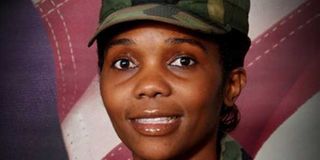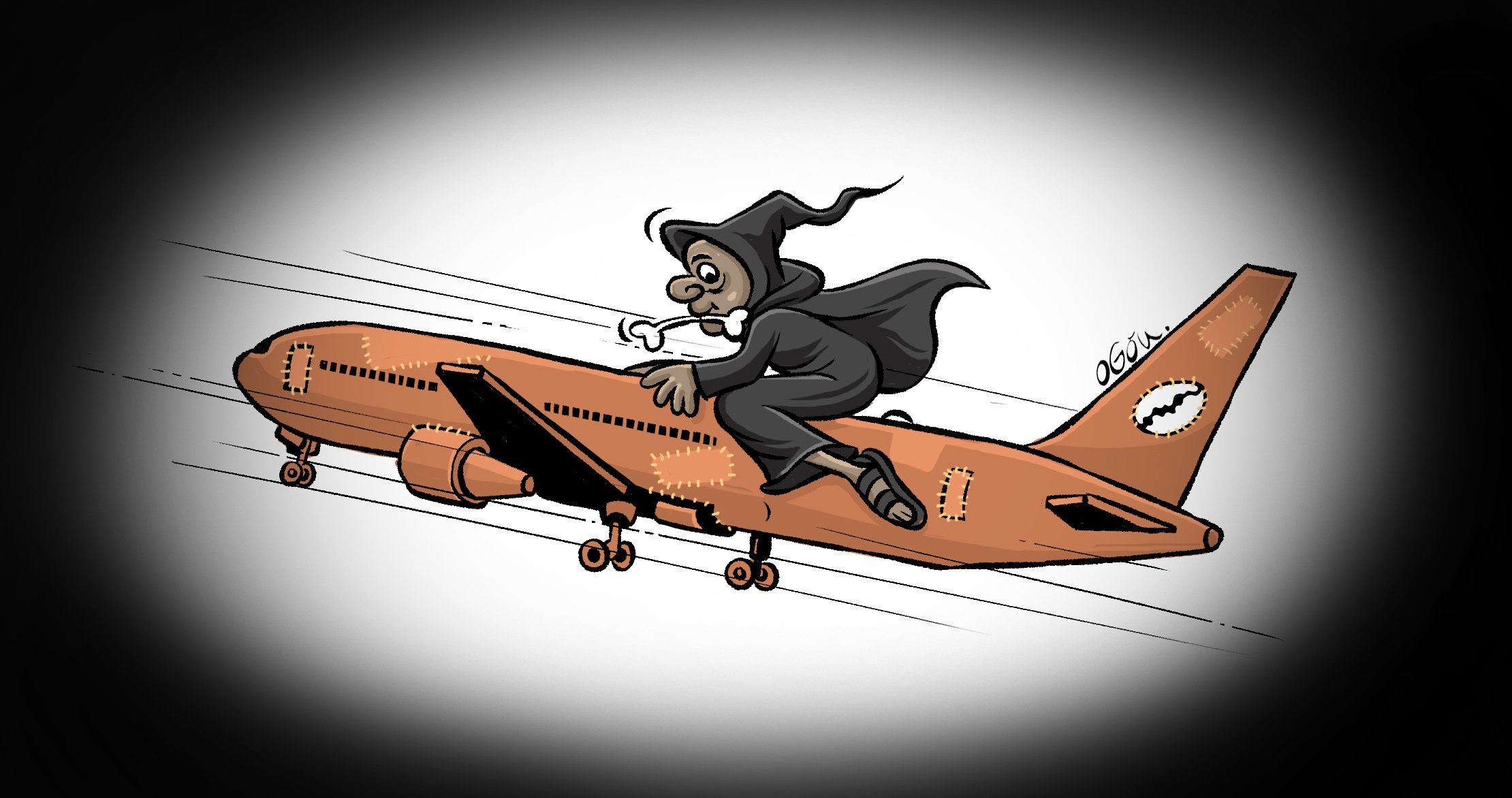Prime
Journey from Gayaza to the US Air force

Capt Lukiah Mulumba has risen from humble roots.
Capt Lukiah Mulumba does not look like a soldier, especially one in the strongest air force on the planet. But she is. A radiant woman, with a very disarming smile, you could easily place her in a kindergarten classroom, surrounded by playful toddlers, than by the sides of injured US soldiers where she actually works as a critical nursing officer.
Last month, she accepted an award in Kampala at the Ugandan Diaspora Social Networking gala for achievements in her field and for waging war against sickle cell disease.
At 38, but looking more than a decade younger, Capt Mulumba’s life had the ingredients for a learning the board of inspiration and determination to make it in life. Her life’s journey starts in 1974, in the suburbs of Gayaza, in Kitii village, and then it weaves its way across the Atlantic Ocean. In the process, it tells a story of how an ordinary girl dreamed big, and, how she strove to achieve her dream.
The soldier is keen to emphasise that having spent nearly two decades in the US has not cheated her of any of the Ugandan training she got as a child. “We used to grow beautiful plants in the village. Many of you think I don’t know how to dig, but I do. What happens is that people go to South Africa for one month and they change, but I didn’t,” she says.
Switching to clear crisp Luganda, if only to prove how strong her roots still are, she adds, “We used to go to the garden and they would apportion a part of the garden for everyone to dig. We used to grow plants, and dig, clean the house, scrub the floor, cook matooke - I can cook matooke better than any matooke I have eaten here. So they raised us like girls, we would wash the dishes and put them on the katandalo (traditional utensils stand). I still remember all that stuff.”
Capt Mulumba says she attended Namugongo Primary School, an institution she is thankful to for having shaped her character at an early age. “That school was great,” she says. “We used to go to the gardens with the nuns and they used to teach us how to sow, and how to make mats. Many girls today don’t even know how to make mats. I know how to make a mat,” she says.
A child’s moral foundation is built between the ages of 6 and 13 years old, beyond that, it is too late, says Capt Mulumba. She says that having a strict dad on one hand, and a school that strictly enforced discipline, did the trick for her.
“I think it’s helpful if your parents are very tough. America didn’t make me this. It only helped the beauty in me come out. But I think he (her Dad) worked so hard for us. I don’t remember a time when he didn’t talk about education and a degree. He was so against boys,” she says.
Capt Mulumba is very fond of her father. While receiving her award at Serena Hotel, she rushed over to where he sat and pulled him by the hand to the podium to accept the award with her. “Did you see that wonderful man… you did? Did you take his picture? Oh he is a very wonderful man,” she says when asked about her father. She is especially thankful that he kept her in school and insisted that she got a degree before marriage.
Cutting the teeth
She left Uganda for the US in 1995, after completing High School at Ndejje Senior Secondary School. “I went with the mindset of coming back to help people living with HIV/Aids. Our entire village was wiped out. But after my daughter fell sick with sickle cells, I said I am going to help people with sickle cell disease.”
The US air force captain married her teenage love, Abdullah Mulumba in 2002. Their first child, Mariam Carol Zawedde Mulumba, was diagnosed with sickle cell disease just days after birth. That would mark the beginning of Capt Mulumba’s family’s fight with sickle cell, a fight that goes on to this day, four years after her daughter was cured of the disease.
With the US air-force picking the $250,000 bill for the bone marrow transplant that made the treatment possible, the family was also honoured with a meeting with US President Barack Obama, which is what Carol had wished for in case she recovered from the disease.
Capt Mulumba enrolled at the Catholic University of America where she studied nursing which came with its own difficulties. “Nursing school was so hard, I don’t remember going to a school like that in Uganda. There were exams every week, making presentations, quizzes, and many other things. The hardest course was Child Development because they would ask you for instance, at what age does a child start riding a tricycle? But we don’t play with tricycles in Uganda. We play outside.”
She then joined John Hopkins University Hospital, where she worked on the neural floor, taking care of surgery patients. It is in 2005 that she would finally enrol in the US air-force. She joined the air force in part to give back to the US. “This country has given me the chance to shine, to use the talents that I probably would not have used here in Uganda…you know how it is here, you have to be somebody’s child to make it.
I was so grateful to this country, and when they went to war and were looking for nurses doing critical care nursing, I decided to join.”
Making a mark in the US has not come easy. “When I went to America, things were tough, and you are afraid to speak to a lot of people because you are a foreigner, and you have an accent. But you know what, I am in the US air force. I have a fake accent but they salute me. When I take care of those patients, I take care of them damn good,” she asserts.
There are two things that you notice grip Capt Mulumba’s attention as you speak to her – her daughter Carol and her dad. The experiences of treating Carol for seven years before the operation created such a strong bond between the two, a bond that shows every time she speaks about the child or even about sickle cell. She also values her relationship with her husband. “He is the best man. I don’t think there is anybody who is better than this man, and I made the right choice,” she says of him.
Capt Mulumba is a very light hearted woman, with infectious playfulness. She is quick to joke and is very informal too, referring to you by first name in nearly every sentence she says. She has set up an organisation to help sickle cell patients in Uganda, turning the troubles that befell her into an avenue for impacting society.
She advises girls to keep on dreaming, and to respect and appreciate their parents as the way to success. “You have to keep on dreaming. You may not enter the US air-force because that will require you to be a US citizen, but who knows, you could join Uganda’s air force.”




